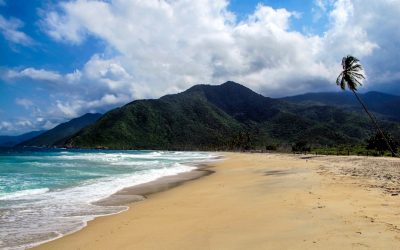Discovering the Hidden Gems of Chernivtsi: A Journey Through the Heart of Ukraine
Chernivtsi, located in western Ukraine, is a city that is rich in history and culture. With its stunning architecture, vibrant cultural scene, and fascinating Jewish heritage, Chernivtsi is a must-visit destination for travelers. The city has a long and storied past,...
Exploring the Beauty and Rich Culture of Zimbabwe: A Journey Through Southern Africa
Zimbabwe, located in Southern Africa, is a country that is often overlooked by travelers. However, it is a hidden gem that offers a wealth of natural wonders, rich history and culture, vibrant city life, and unique experiences. With its stunning landscapes, diverse...
Exploring the Wonders of Zambia: A Journey Through the Heart of Africa
Located in southern Africa, Zambia is a landlocked country known as the “Jewel of Africa.” With its rich history, diverse culture, and breathtaking landscapes, Zambia is a must-visit destination for travelers. The country is bordered by eight other...
Exploring the Historic City of Chernihiv: A Journey Through Time
Chernihiv, located in northern Ukraine, is a city rich in cultural heritage and history. With its ancient streets, magnificent architecture, and fascinating history, Chernihiv offers visitors a unique and immersive experience. From its iconic landmarks to its artistic...
The Crisis in Yemen: A Call for International Aid and Support
The ongoing conflict in Yemen has been described as one of the world’s worst humanitarian crises. The conflict, which began in 2014, has resulted in widespread violence, displacement, and a severe lack of basic necessities for the Yemeni people. This article...
Exploring the Wonders of Gallium: A Fascinating Metal with Unique Properties
Gallium is a unique and uncommon metal that has captured the attention of scientists and researchers around the world. It is a soft, silvery-white metal that is found in small amounts in various minerals. Gallium is known for its low melting point, which is just above...
Discovering the Wonders of Vietnam: A Journey Through Southeast Asia’s Hidden Gem
Vietnam is a country that has captured the hearts of many travelers with its rich history, stunning landscapes, vibrant cities, and delicious cuisine. Located in Southeast Asia, Vietnam is known for its diverse culture, friendly people, and endless wonders waiting to...
Exploring the Hidden Gems of Cherkasy: A Journey Through the Heart of Ukraine
Cherkasy, located in central Ukraine, is a city with a rich history and vibrant culture. The city dates back to the 13th century and has been influenced by various civilizations throughout the centuries. From its medieval roots to its modern-day charm, Cherkasy offers...
Venezuela’s Turmoil: A Deep Dive into the Country’s Economic and Political Crisis
Venezuela is currently facing one of the most severe crises in its history. The country is plagued by hyperinflation, food and medicine shortages, and political instability. It is important to understand the history and causes of this crisis in order to fully grasp...
The Wonders of Vatican City: Exploring the Holy See’s Rich History and Culture
Vatican City, the world’s smallest independent state, holds a significant place in the hearts of Catholics worldwide as the spiritual and administrative center of the Roman Catholic Church. Nestled within the city of Rome, Italy, Vatican City is home to iconic...
Discovering the Hidden Gems of Vanuatu: A Journey Through the Picturesque Islands
Nestled in the South Pacific Ocean, Vanuatu is an archipelago of 83 stunning islands known for their unspoiled natural beauty, rich cultural heritage, and vibrant local communities. This tropical paradise offers a unique travel experience for those seeking an...
The Importance of Zinc (Zn) in Maintaining Optimal Health and Wellness
Zinc is an essential mineral that plays a crucial role in maintaining overall health and wellness. It is involved in various physiological processes in the body, including immune function, cognitive function, skin health, wound healing, vision, reproductive health,...











